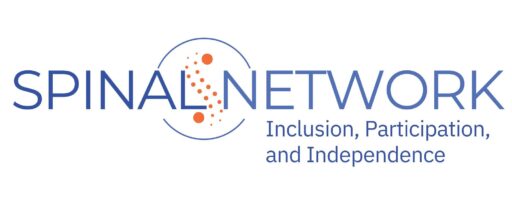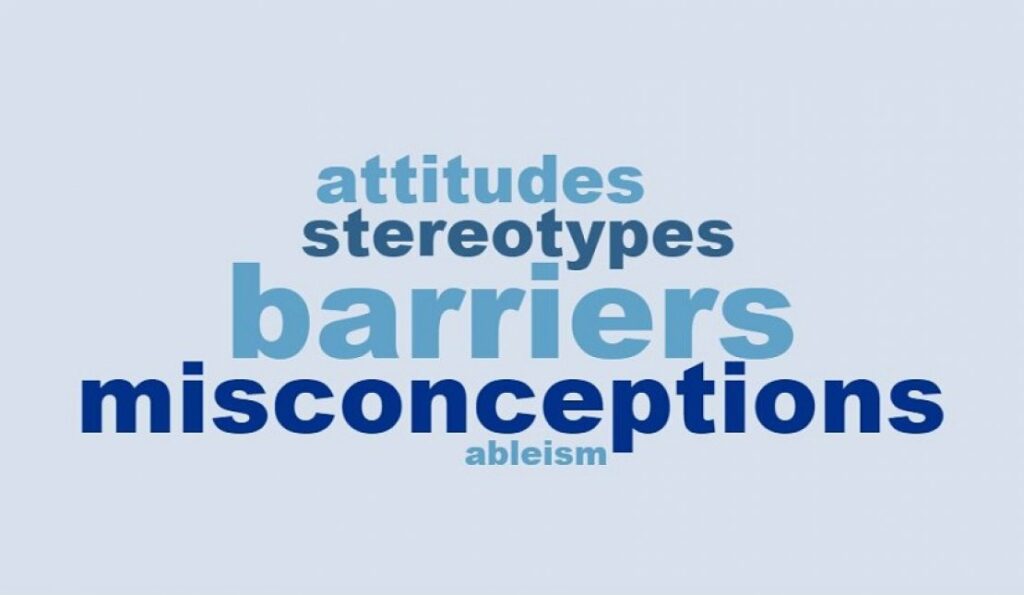Ableism is discrimination and social prejudice against people with disabilities and/or people who are perceived to be disabled. Ableism characterizes persons who are defined by their disabilities as inferior to the non-disabled.
Ableism refers to “discrimination in favor of able-bodied people,” according to the Oxford English Dictionary. But the reality of ableism extends beyond literal discriminatory acts (intentional or not) to the way our culture views disabled people as a concept. Ableism is also the belief that people with disabilities “need to be fixed or cannot function as full members of society” and that having a disability is “a defect rather than a dimension of difference,”
This interpretation of difference as defect is the true root of ableist acts that cause far too many to feel marginalized, discriminated against and ultimately devalued in this society. Here are just six forms of this behavior that, though largely normalized, need to be retired immediately.
1. Failing to provide accessibility beyond wheelchair ramps
Perhaps the most obvious form of discrimination people with disabilities face is the inability to access places and services open to their able-bodied counterparts — even with laws in place to prevent such inequality.
As Tumblr user The (Chronically) Illest noted, while most people think “just [putting] wheelchair ramps everywhere” is sufficient, true accessibility accommodates all types of disabilities — not just physical disabilities that specifically bind people to wheelchairs. Accommodations can also include “braille, seeing-eye dogs/assistant dogs, ergonomic workspaces, easy to grip tools, closed captions … class note-takers, recording devices for lectures” and other services and alterations.
2. Using ableist language
“When a critique of language that makes reference to disability is not welcome, it is nearly inevitable that, as a disabled person, I am not welcome either,” Rachel Cohen-Rottenberg wrote in a 2013 Disability and Representation article. But beyond individual feelings, ableist language can contribute to a foundation of more systemic oppression of people with disabilities as a group.
3. Able-bodied people failing to check their privilege
It may not seem like a big deal in the moment, but able-bodied individuals fail to recognize the privilege of having access to every and any space accessible. As Erin Tatum points out at Everyday Feminism, plenty of people may not directly discriminate against people with disabilities but effectively do so by using resources allocated for them. For example, many able-bodied people use handicapped bathroom stalls or take up space in crowded elevators, rather than taking the stairs and leave room for people with disabilities who don’t have other options, without a second thought.
4. Assuming people with disabilities have no autonomy
“There is a very narrow-minded perception of disability,” Cannington told Mic. “That narrow-minded assumption that all individuals with disabilities need and want certain things,” and assuming those individuals “constantly need help without actually asking the person [if they do],” is a common ableist experience Cannington and far too many others have faced.
“Automatically helping us without asking first should never be done,” Tiffiny Carlson said in a 2013 Huffington Post article. “We know when to ask for help. Just wait for us to speak up.”
5. Feeling entitled to know how people became disabled
“Able-bodied people will often assume that our existence represents some kind of mystery that they need to get to the bottom of,” Tatum explained at Everyday Feminism. But putting the onus on people with disabilities to explain themselves.
6. Assuming disability is always visible
Though their experiences are undoubtedly distinct from individuals with physical disabilities, people with non-apparent disabilities certainly face ableism as well. There is pervasive stigma surrounding mental illness, for example, and it can and often does lead to inequitable treatment, such as forced institutionalization and medication and a lack of agency in treating one’s mental health, Cannington told Mic.
In conclusion;
“As human beings we need to check our privileges in regards to our abilities,” Cannington concluded. “In order to harness the power and diversity and innovation of our society, we have to realize that our minds and bodies experience the world in very different ways. If we are able to create access and be more intentional about how we create access, then we are doing everyone good.”
Mic Magazine, by Julie Zeilinger, July 7, 2015

